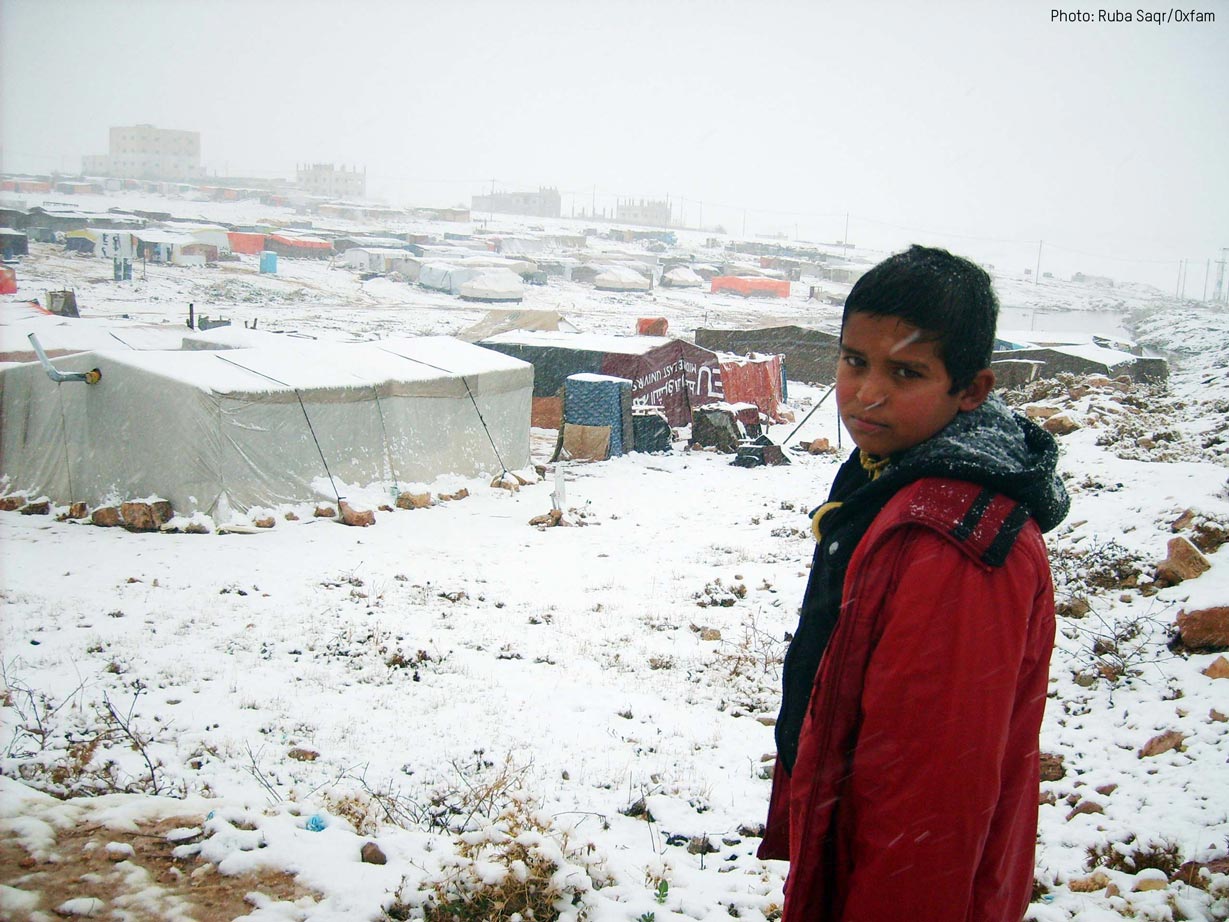
Oxfam campaigners are amongst the hundreds of diplomats, journalists, civil society and solidarity groups gathering for the beginning of the long awaited ‘Geneva 2’ peace talks for Syria in the tranquil town of Montreaux, on Lake Geneva in Switzerland.
Police are patrolling the edges of a security fence which rings the buildings where the talks will be held, but the atmosphere is calm, and the diplomatic dramas that have dominated the news in the last few days feel weirdly distant.
Despite the quiet and calm mood here, there is of course a huge amount at stake here in Geneva this week. Nothing is more urgent than these peace talks. As the Syrian conflict approaches its third anniversary, this is the best chance so far of ending the violence and alleviating the suffering of millions.
More than 100,000 Syrians have been killed over the last three years; over half the population of Syria is in need of humanitarian assistance, with over 6.3m people displaced within the country; more than 2m people have had to flee the country altogether.
With such staggering numbers, some hope for the future is desperately needed right now. Political leaders need to make sure that these are not talks for the sake of talks – they must lead to real change for the Syrian people. If states can leave aside their own interests, and focus instead on what is best for Syria, there is a real chance for this to mark the start of a journey towards peace.
Oxfam is calling for a ceasefire for Syria, to stop the killing and to allow all who need assistance to be able to access it; a complete halt to the arms and ammunition transfers into Syria, which are fuelling the conflict; and the full and active participation of women and civil society organisations in the political process moving forward to give it the best possible chance of success. On the eve of the talks, it does not look like civil society will get much of an opportunity to participate at all – and Syrian women’s groups that have travelled to Geneva may be left out in the cold.
Now Australia has an invite to the talks, and will be sending seasoned Geneva based Ambassador Peter Woolcott to head the delegation. Ambassador Woolcott knows the importance and value of civil society participation in negotiations like this – having been the Chair of negotiations on the world’s first legally-binding Arms Trade Treaty last year – where civil society played a vital role in the Treaty’s success. We hope that Australia will be a vocal supporter of the active participation of women and civil society groups in Geneva II – after all, we know from bitter experience peace talks that aren’t inclusive have a much lower chance of success.
We are joining with Syrian and global civil society this week to put pressure on political leaders not to let hope die, and work every second for a peaceful and prosperous future for the people of Syria.

Support Syrian refugees with basic essentials like clean water, sanitation and shelter.